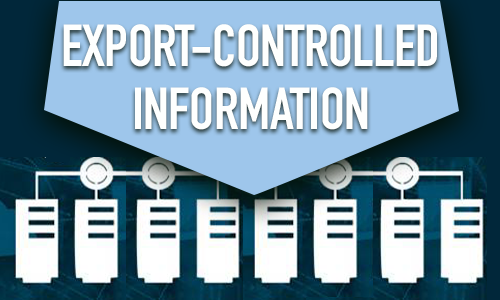OIT News
Do You Collect Export–Controlled Information in Your Research?

Export-Controlled Information (ITAR, EAR) includes information that is regulated for reasons of national security, foreign policy, anti-terrorism, or non-proliferation. The International Traffic in Arms Regulations (ITAR) and Export Administration Regulations (EAR) govern this data type. Current law requires that this data be stored in the U.S and that only authorized U.S. persons be allowed access to it. U.S. Persons include U.S. Citizens and persons with a Legal Permanent Resident status (green card).
Examples of ITAR, EAR:
- Chemical and biological agents and toxins
- Military electronics
- Documents detailing work on new formulas for explosives
- Military or defense articles and services
- Dual use technologies (technologies with both a military and commercial application)
- Encryption technology
- Nuclear technology
- Space technology and satellites
Research may be subject to export controls oversight when:
- The items, materials, technology or technical data used in the research are identified on U.S. export control lists.
- Researchers work formally or informally with, or provide technical assistance to, foreign nationals from countries currently sanctioned (e.g., for trade, travel, or terrorism) by the U.S.
- A research agreement (e.g., contract, award, non-disclosure agreement) limits publication of results or participation in the design, conduct, or reporting of the research based on citizenship.

 Explore
Explore Write
Write Chat
Chat Call
Call